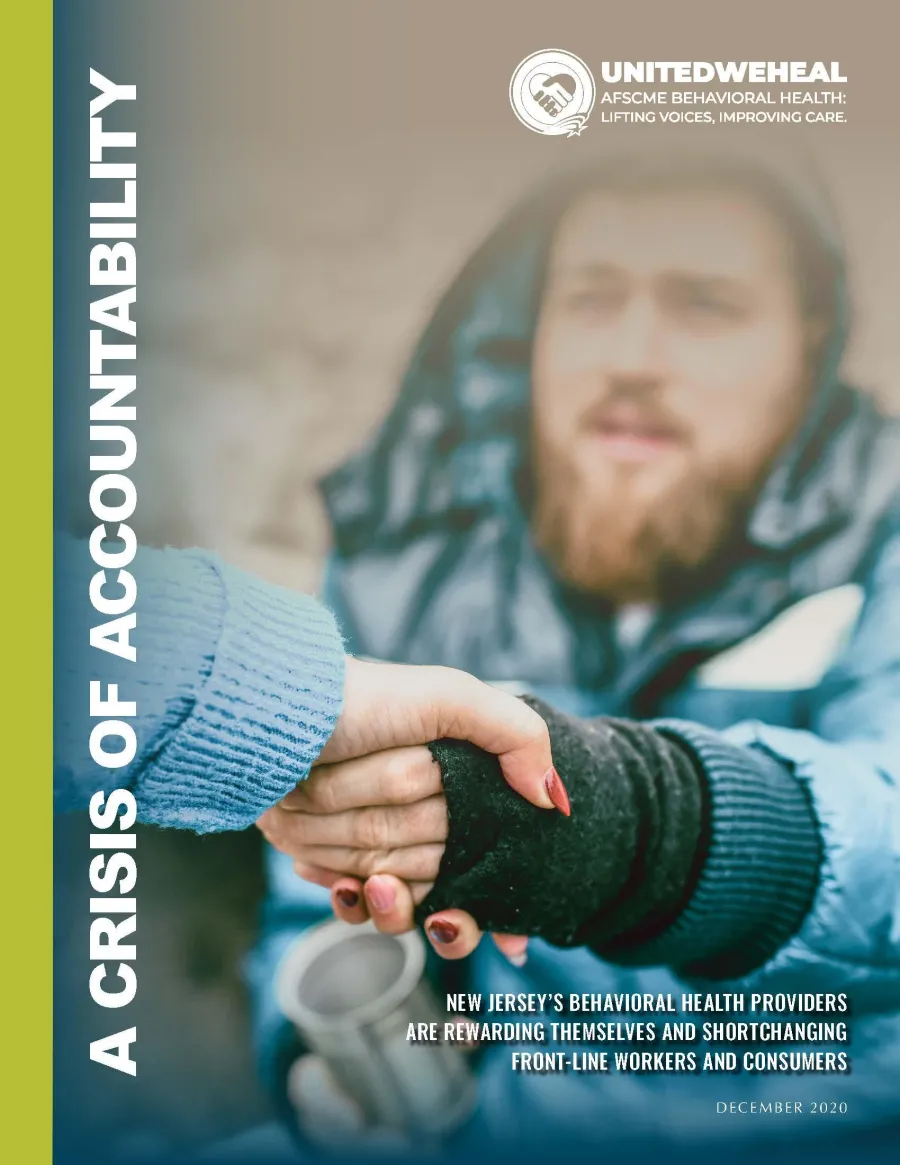A Crisis of Accountability New Jersey Whitepaper

Download the full report here.
No matter where they provide care – in behavioral health facilities, residential treatment centers, or outpatient clinics – behavioral health professionals wake up every day committed to improving the lives of people who are affected by mental illness and substance use disorders. While their titles and their place in the continuity of care may vary, workers like Licensed Professional Counselors, Certified Alcohol and Drug Counselors, Residential Counselors, Direct Care Staff, Social Workers and Case Managers, are all an essential part of providing behavioral health care for the individuals, groups, and families they’ve supported, assessed, and diagnosed. These workers are the heart of behavioral health in New Jersey.
Right now, hundreds of millions of dollars in federal and state coronavirus relief funds are pouring into New Jersey’s behavioral health system. During the worst pandemic in a century, these funds are needed to ensure the continuity and quality of behavioral health services and to protect and retain the front-line workers who provide those services to half a million people. New Jersey’s behavioral health providers have long been vocal about the need for relief funding and have consistently pushed for more money to recruit and retain the workers providing mental health services and substance use treatment on the front lines.
Indeed, the behavioral health provider association has admitted publicly that “community behavioral health care providers are facing a workforce crisis” due to pay so low and conditions so poor that many front-line workers “have left and many continue to leave for positions in retail, fast food or other industries where the pay is comparable, the work is less difficult, and the stress is minimal.” They also acknowledge how the inability to retain experienced staff does not just disrupt the continuity of care, it degrades the quality of care when consumers are able to receive treatment.
However, the experience of recent years demonstrates that this a problem of the providers’ own making. AFSCME’s United We Heal has studied the finances of 30 leading providers in New Jersey. We found that, between 2014 and 2018, New Jersey’s providers have thrived as a group, but have left their employees and consumers behind.
Furthermore, a review of state audits and inspection reports, legal documents, and interviews with frontline workers reveals a system where billing is maximized while corners are cut on consumer care. As the state continues to invest in mental health services and substance use treatment, it must improve its oversight of providers to ensure that these funds get through to consumers and the front-line workforce.
